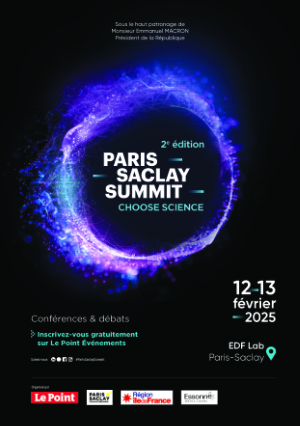CIFRE Optimization of architecture and advanced control strategies for thermal management of electric vehicles
| ABG-127289 | Thesis topic | |
| 2024-11-29 | Cifre |

- Engineering sciences
- Energy
- Mathematics
Topic description
CIFRE PhD Offer
The automotive industry is rapidly shifting towards electric vehicles (EVs) in response to environmental concerns and strict emission regulations. Technological advancements in batteries, electric motors, aerodynamic and thermal management systems are crucial. These systems keep critical components at optimal temperatures, thereby improving the efficiency and longevity of EVs.
The proposed thesis project aims to develop an optimal architecture and control strategies for the thermal management of electric vehicles (EVs). This project addresses several key challenges: Energy Efficiency, System Integration, Component Durability, Occupant Comfort, Regulatory Compliance, Safety. Innovations include advanced modeling and simulation methods and multi-objective optimization techniques for more efficient and adaptive thermal management systems.
The first step involves determining the best configuration of thermal components, such as heat exchangers, heat pumps and valves, to maximize energy efficiency and minimize costs. This includes thermal modeling of the components and the overall system, as well as evaluating the performance of different topologies under global energy consumption, cost and occupant comfort constraints. Next, the thesis focuses on developing optimal control strategies using advanced methods such as dynamic programming (DP). These methods will allow for optimal heat distribution management, requiring precise modeling of components and the overall system to evaluate the performance of different topologies. This step includes evaluating the performance of thermal systems under various driving scenarios and climatic conditions to ensure their robustness and adaptability.
The expected results of this thesis include the demonstration of the feasibility of online control of thermal systems for the cabin and the electric vehicle powertrain. This control must meet constraints (comfort, aging, etc.), achieve the objectives of reducing the overall consumption of the vehicle, and quickly adapt to driving and climatic conditions.
A deposit on the ANRT web site will be carried out as well as a request for access to the laboratory (ZRR).
Starting date
Funding category
Funding further details
Presentation of host institution and host laboratory
Stellantis N.V. is a multinational automotive manufacturing company formed from the merger in 2021 of the Italian–American conglomerate Fiat Chrysler Automobiles (FCA) and the French PSA Group. The Carrières-sous-Poissy Stellantis technical center is a research and development center located in Carrières-sous-Poissy in the Yvelines department (France). Created by Chrysler in 1970, the center became part of the Stellantis group in 2021.
The activity of the PRISME (Pluridisciplinaire de Recherche, Ingénierie des Systèmes, Mécanique, Energétique) laboratory is in the vast field of mechanical engineering, covering automatics, robotics, signal processing, image processing, complex systems modelling, fluid mechanics, risk, transport, energy, combustion. Its workforce is 180, with 90 faculty members, 20 technical staff and around 65 PhD students and post-docs. PRISME has 2 departments (FECP and IRAuS). In the Fluid, Energetics, Combustion & Propulsion (FECP) department, the Energie, Combustion moteur (ECM) research team comprises 5 full professors, 5 lecturers, design engineers, 1 research engineers, assistant engineers and several technicians. The ECM research team works in the field of propulsion systems optimization in terms of efficiency and pollutant emissions based on experimental and a 0D/1D modelling approach. The ECM research team is involved in many project networks (region, ANR, Europe …). The research group has also developed strong partnerships with the automotive industry (Openlab Stellantis, Renault, Phinia, John Deere, …).
PhD title
Country where you obtained your PhD
Institution awarding doctoral degree
Graduate school
Candidate's profile
Skills in demand
Strong skills in applied mathematics (automatic control theory, optimization, machine learning) and/or in thermal/energy modeling of systems
Knowledge of associated tools would be appreciated (e.g. Matlab/Simulink, python, GTSuite, Amesim)
Automotive knowledge would be appreciated.
Very good written and oral communication skills (in French) and English.
Vous avez déjà un compte ?
Nouvel utilisateur ?
Get ABG’s monthly newsletters including news, job offers, grants & fellowships and a selection of relevant events…
Discover our members
 CASDEN
CASDEN  Généthon
Généthon  ADEME
ADEME  Tecknowmetrix
Tecknowmetrix  Laboratoire National de Métrologie et d'Essais - LNE
Laboratoire National de Métrologie et d'Essais - LNE  SUEZ
SUEZ  ANRT
ANRT  MabDesign
MabDesign  TotalEnergies
TotalEnergies  Nokia Bell Labs France
Nokia Bell Labs France  Groupe AFNOR - Association française de normalisation
Groupe AFNOR - Association française de normalisation  Institut Sup'biotech de Paris
Institut Sup'biotech de Paris  CESI
CESI  Ifremer
Ifremer  PhDOOC
PhDOOC  Aérocentre, Pôle d'excellence régional
Aérocentre, Pôle d'excellence régional  MabDesign
MabDesign  Institut de Radioprotection et de Sureté Nucléaire - IRSN - Siège
Institut de Radioprotection et de Sureté Nucléaire - IRSN - Siège  ONERA - The French Aerospace Lab
ONERA - The French Aerospace Lab




